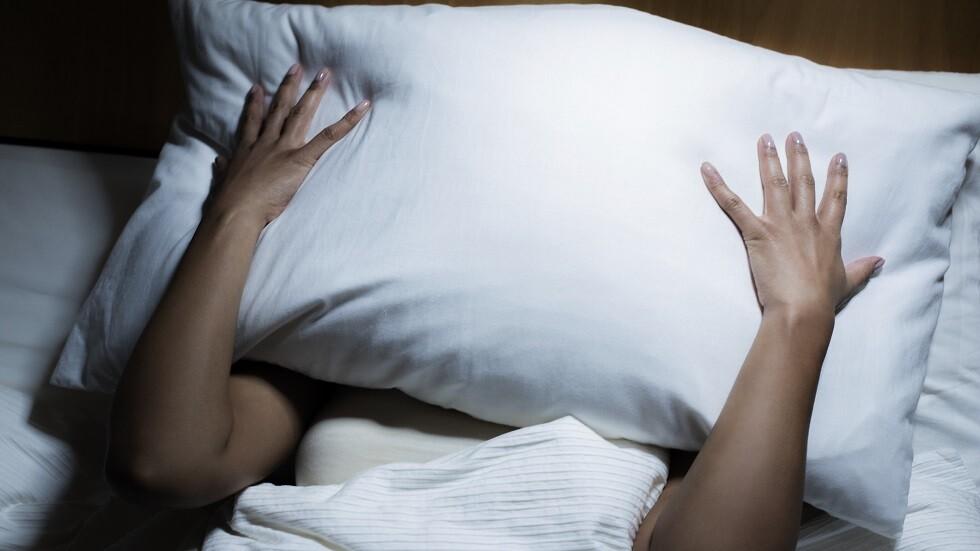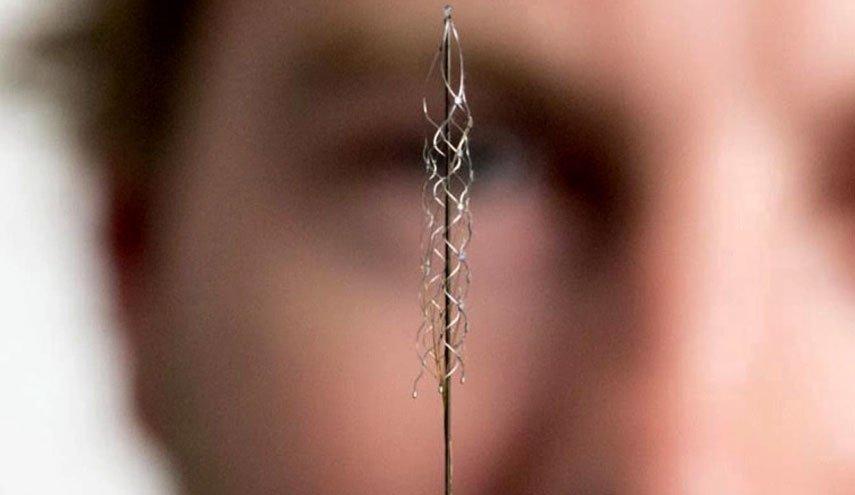Does the Corona pandemic give us nightmares?
A Decrease font size. A Reset font size. A Increase font size.
Amman-Al-Ghad- Do you often wake up these days from a disturbing dream, or even from a frightening nightmare?
Sleep experts say the reason behind this is a combination of sleep changes fueled by the conditions of the “Covid-19” pandemic, which carries a year of psychological stress.
Sleep specialist Dr. Raj Dasgupta, assistant professor of clinical medicine at the Keck School of Medicine at USC, said his patients come to him with nightmares.
Dasgupta explained that experiencing nightmares is a phenomenon that we have seen during other traumatic events taking place around the world, adding: “The fact that we are experiencing more nightmares during this pandemic does not surprise me.”This phenomenon started about a year ago, not long after the lockdowns started all over the world. Frontline workers have been hit hard by it, as a June 2020 study of 100 Chinese nurses found that 45% of them suffer from nightmares, along with varying degrees of anxiety and depression.
But experts say the nightmares have continued as quarantines and lockdowns continue, and the reason is an increase in “night owls,” people who tend to stay up late at night.
Deprived of mobility and an organized schedule, Dasgupta said, people are starting to stay up late amid the pandemic, meaning they are sleeping later than usual, paving the way for more detailed and even more frightening dreams.The longer sleep allows more time for a deeper stage of sleep called REM sleep, when the body consolidates memories, stores them, and repairs the body.
REM sleep occurs during the later part of the night, usually just before you wake up, according to clinical psychologist and sleep specialist Michael Breuss.
If you add the anxiety and stress of the pandemic, Breuss said, you have the perfect recipe for nightmares.
Trauma dreams
And disturbing dreams during stressful times are nothing new. Nightmares have long been a major problem for veterans suffering from post-traumatic stress disorder, or post-traumatic stress disorder.
Studies found an uptick in trauma-related dreams after 9/11, and nurses and other frontline workers reported intense nightmares after caring for people with Ebola during the 2014-2016 outbreak in Guinea, West Africa.
When the emerging coronavirus pandemic began, studies began documenting a similar reaction in the United States, said Rebecca Robbins, a scientist at Brigham and Women's Hospital in Boston who studies sleep medicine.Last spring, an online test by Harvard Medical School assistant professor of psychology and author of several dream books, Deirdre Barrett, documented numerous nightmares about insects.

She said that bad dreams also contain other metaphors for the Corona virus, such as “tsunamis, hurricanes, earthquakes, fires breaking out, and shooting in the streets.”
A variety of dreams focused on fears of contracting the virus: for example, the dreamers might have seen themselves without masks in public, with others coughing towards them. As the quarantine continues, dreams focus on confinement.
Barrett explained that people who stay home alone will dream that they are locked in prison.
Barrett indicated that doctors and nurses in intensive care units reported nightmares of shock, which is the type that can occur in other stages of sleep besides rapid eye movement, explaining that they have nightmares in the full sense of the word, such as dreaming of taking care of a dying person because of “ COVID-19”, and they try to do something like put the patient on the ventilator, or reconnect the tube that comes out of the ventilator, or the ventilators are not working.
The doctors and nurses feel it is their responsibility to save the life of this patient in their dream, yet they don't actually have much control over the events of the dream.
Dasgupta noted that these dreams continue tragically today, as the virus continues to kill millions around the world. In addition to the front line workers. Many of the people who were hospitalized and survived the virus suffer from nightmares.
What to do
People who suffer from vivid, frightening nightmares that haunt them or lead to feelings of hopelessness and depression, should seek help from a mental health professional and use some of the tips below:
Check how warm your bedroom is
And Robins pointed out that if your body is very warm, this may prepare you to see disturbing dreams.
However, if you sleep in a cold place and have these nightmares, “it could be related to feelings of depression, anxiety, or other mental health issues,” says Robbins.
Check your medications"There are some medications that cause hallucinations and nightmares," Robbins explained.
Blood pressure drugs called beta-blockers can affect how the brain handles norepinephrine, a neurotransmitter responsible for our "fight or flight" response.
Certain antihistamines, antidepressants, sleeping aids, statins, and other medications are also associated with disturbed dreams.
Consumption of alcoholic beverages and the use of barbiturates can lead to the same thing.
How do you overcome stress amid the Corona virus crisis? 5 natural ways to boost your mental health during stressful times Stick to a regular sleep schedule
Dasgupta said that staying up late at night is a problem because the body's circadian rhythm controls all the body's hormones, temperature, eating, digestion, sleep-wake cycles, noting that tampering with it can be unhealthy.Studies of shift workers, who work unusual hours and live outside their normal biological rhythm, show that they are at increased risk of heart disease, ulcers, depression, obesity and certain types of cancer.
The study found that the more days you sleep irregularly, the higher the risk.
The best time to sleep comes when you have a regular time to go to bed and get up, “even during weekends and holidays,” Dasgupta added, quoting CNN Arabic.
Prepare your mind for sweet dreamsUsing good sleep cleansing techniques, including putting away blue light-emitting smartphones and laptops two hours before bed, taking warm showers, and doing relaxation exercises, yoga or meditation before bed, are great ways to calm anxiety and clear your mind from stress.
Tags: nightmares, healthy sleep, corona virus







